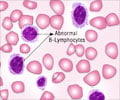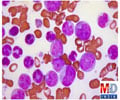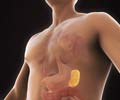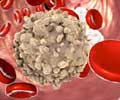Frequently asked questions about Leukemia
1. Which doctor should I consult for leukemia?You have to consult an Oncologist.
2. Are there side effects for chemotherapy?
It is hard to limit the effects of therapy so that only leukemia cells are destroyed. Because treatment also damages healthy cells and tissues, it causes side effects. The side effects of cancer treatment vary. They depend mainly on the type and extent of the treatment. Also, each person reacts differently. Side effects may even be different from one treatment to the next. Doctors try to plan the patient's therapy to keep side effects to a minimum.
3. What is the prognosis of chronic leukemia?
Overall medical survival is about 6 years 50% of cases die of infection .
4. Are there complications of a bone marrow transplant?
Patients who have a bone marrow transplant face an increased risk of infection, bleeding, and other side effects of the large doses of chemotherapy and radiation they receive. In addition, graft-versus-host disease (GVHD) may occur in patients who receive bone marrow from a donor. In GVHD, the donated marrow reacts against the patient's tissues (most often the liver, the skin, and the digestive tract).
GVHD can be mild or very severe. It can occur any time after the transplant (even years later). Drugs may be given to reduce the risk of GVHD and to treat the problem if it occurs.
5. What are the effects of Radiation therapy?
Patients receiving radiation therapy may become very tired. Resting is important, but doctors usually suggest that patients remain as active as they can.When radiation is directed to the head, patients often lose their hair. Radiation can cause the scalp or the skin in the treated area to become red, dry, tender, and itchy. Patients will be shown how to keep the skin clean. They should not use any lotion or cream on the treated area without the doctor's advice. Radiation therapy also may cause nausea, vomiting, and loss of appetite. These side effects are temporary, and doctors and nurses can often suggest ways to control them until the treatment is over.
However, some side effects may be lasting. Children (especially young ones) who receive radiation to the brain may develop problems with learning and coordination. For this reason, doctors use the lowest possible doses of radiation, and they give this treatment only to children who cannot be treated successfully with chemotherapy alone.
Also, radiation to the testicles is likely to affect both fertility and hormone production. Most boys who have this form of treatment are not able to have children later on. Some may need to take hormones.



















